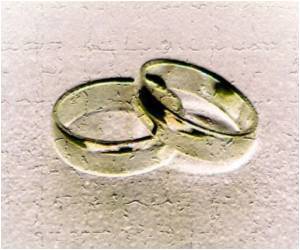Though it was thought that it is the psychological impact of divorce on the child, genetics are responsible for the intergenerational transmission of divorce.

TOP INSIGHT
Growing up with divorced parents weakens your commitment to and the interpersonal skills needed for marriage.
"Across a series of designs using Swedish national registry data, we found consistent evidence that genetic factors primarily explained the intergenerational transmission of divorce."
The study's findings are notable because they diverge from the predominant narrative in divorce literature, which suggests that the offspring of divorced parents are more likely to get divorced themselves because they see their parents struggling to manage conflict or lacking the necessary commitment, and they grow up to internalize that behavior and replicate it in their own relationships.
"I see this as a quite significant finding. Nearly all the prior literature emphasized that divorce was transmitted across generations psychologically," Kendler said. "Our results contradict that, suggesting that genetic factors are more important."
By recognizing the role that genetics plays in the intergenerational transmission of divorce, therapists may be able to better identify more appropriate targets when helping distressed couples, Salvatore said.
"So, if a distressed couple shows up in a therapist's office and finds, as part of learning about the partners' family histories, that one partner comes from a divorced family, then the therapist may make boosting commitment or strengthening interpersonal skills a focus of their clinical efforts."
"And our study is, at present, the largest to do this. And what we find is strong, consistent evidence that genetic factors account for the intergenerational transmission of divorce. For this reason, focusing on increasing commitment or strengthening interpersonal skills may not be a particularly good use of time for a therapist working with a distressed couple."
The study's findings suggest that it might be useful for therapists to target some of the more basic personality traits that previous research has suggested are genetically linked to divorce, such as high levels of negative emotionality and low levels of constraint, to mitigate their negative impact on close relationships.
"For example, other research shows that people who are highly neurotic tend to perceive their partners as behaving more negatively than they objectively are [as rated by independent observers]," Salvatore said.
"So, addressing these underlying, personality-driven cognitive distortions through cognitive-behavioral approaches may be a better strategy than trying to foster commitment."
Source-Eurekalert
 MEDINDIA
MEDINDIA




 Email
Email









